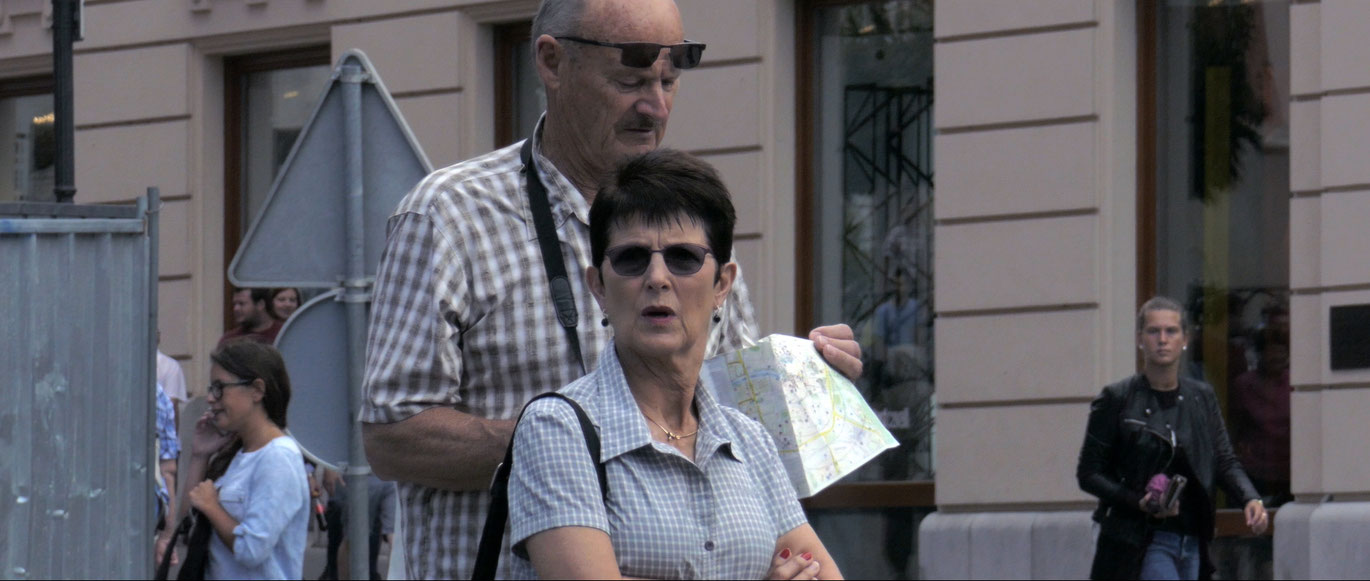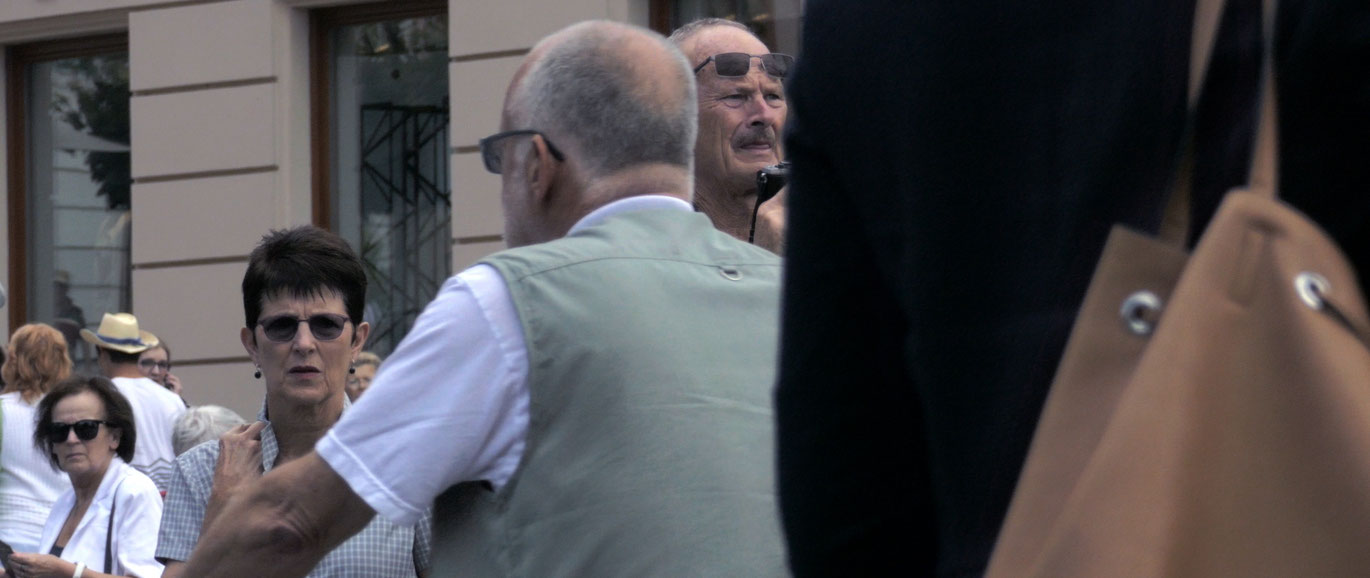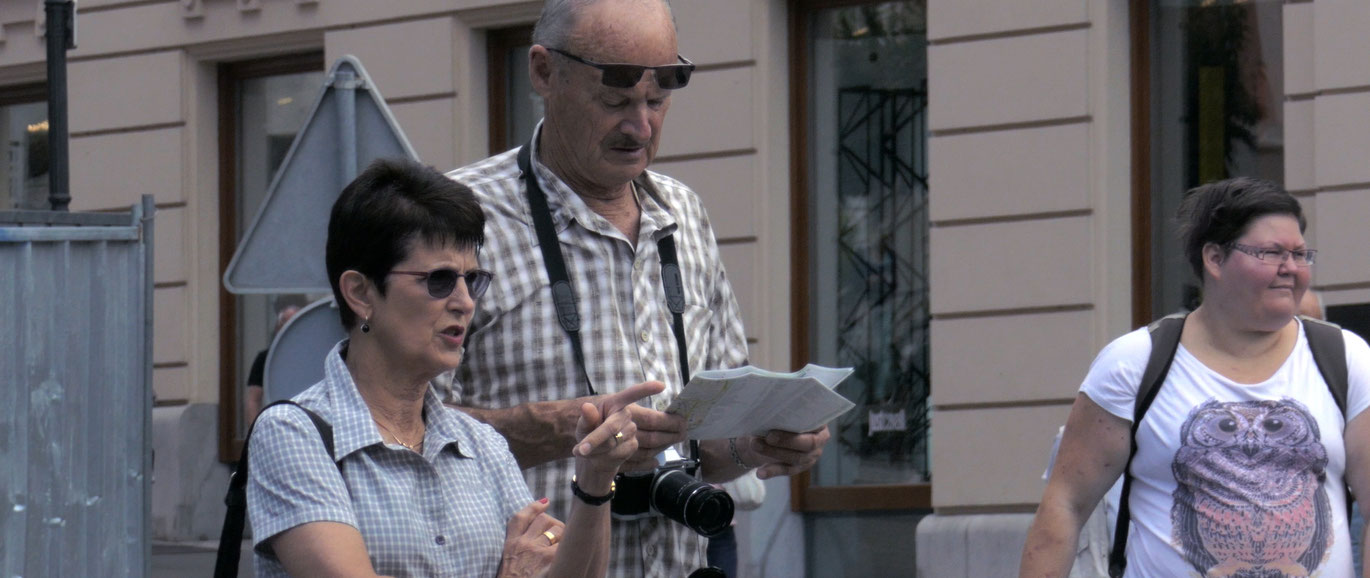Ljubljana Ronde
One single shot shows a tourist pair in a city that is (still) foreign to them. A roundelay of searching and overwhelmed gazes to the music of Max Ophüls’ film La Ronde. Fleeting and random encounters, an offer for viewers to put meaning into every miniscule thing no matter how random in these strange, all too familiar scenes. (Diagonale 2017)
A couple, man and woman in their seventies, looking somewhat "Western European" and definitely like tourists. One silent shot shows them standing on a city square. They are seen through a telephoto lens, so there is lots of blur moving in the foreground, while the background encloses them: a fashion boutique, crowds of people, some on bikes or armed with cameras. The title tells us that we´re in Ljubljana. The scenery is scored with a waltz that was composed for Max Ophüls´ La Ronde in 1950.
Just as Roehsler´s other one-shot-movies featuring everyday posings in urban or touristic situations, this is quite minimalistic. This makes it worthwhile to toy around with a little phantasy: What if these three minutes of film were a feature film´s teaser? The most minute gestures and accentuations would be framed differently according to genre.
It could be the teaser to a romantic melodrama, La Ronde style: The tourists´ turning in a circle to explore an urban panorama could be their way of looking out for new love adventures. Will the woman see the white-haired cyclist with sunglasses and a black T-shirt? In the end, the two remain a couple and walk off together (for the time being).
Or maybe a spy thriller: The photos they take are part of their espionage mission, their slightly clumsy country folk posture is part of their camouflage. Their tourists´ map is a secret message, and the man´s taking off and back on his sunglasses is a coded reply.
Or maybe a refugee drama: On the so-called "West balcan´s route", two people are stranded in Ljubljana, just south of the Austro-Slowenian border crossing at Spielfeld (German for playground) which has become a fortress, while Fortress Europe is now a playground for sinister forces. The two refugees have lost their way and their cell phone signal. The cyclist´s black T-Shirt reads Böhse Onkelz (literally: Evil Uncles, the name of a German rage rock band that originated in nazi music underground).
Or maybe this is slapstick anthropology in the Tati mode, with the waltz giving a fine-tuned choreography to the utter confusion experienced in the holiday of M. Hulot or Mme. Holub or both of them.
And all this is possible, of course, because this image shows just what it shows and nothing else – in a most precisely placed whateverness that makes every moment highly significant, melancholic and funny at the same time. (Drehli Robnik)
Ljubljana Ronde
2016
Austria
3 min



